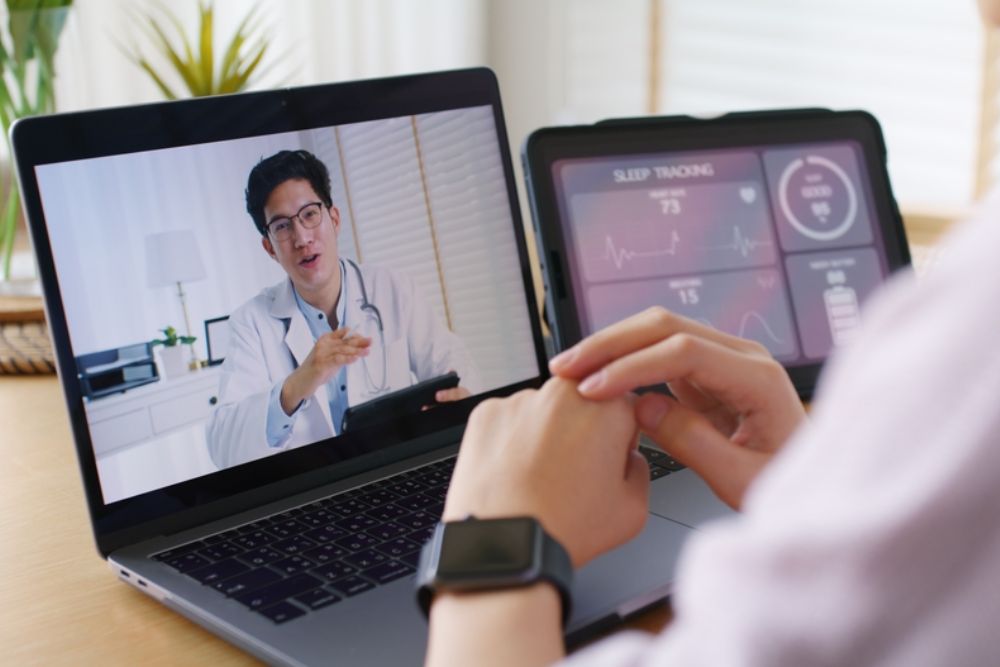The healthcare industry is undergoing a transformative shift, driven by rapid advancements in technology. From artificial intelligence and telemedicine to wearable devices and blockchain, technology is reshaping how healthcare is delivered, improving patient outcomes, and making medical services more accessible. This article explores the various ways technology is influencing the future of healthcare, highlighting key innovations and their potential impact on patients, providers, and the overall healthcare ecosystem.
1. Artificial Intelligence and Machine Learning
Enhancing Diagnostics and Treatment
- Improved Diagnostics: AI algorithms analyze medical images such as X-rays, MRIs, and CT scans with remarkable accuracy, aiding in early detection of diseases like cancer and neurological disorders.
- Personalized Treatment Plans: Machine learning models process vast amounts of patient data to recommend individualized treatment plans, optimizing outcomes.
- Predictive Analytics: AI predicts patient deterioration in critical care settings, allowing for timely interventions.
Case Example: IBM Watson Health uses AI to analyze patient data and scientific literature, supporting oncologists in creating tailored cancer treatments.
2. Telemedicine and Remote Care
Expanding Access to Healthcare
- Virtual Consultations: Patients connect with healthcare providers via video conferencing for routine check-ups and specialist consultations.
- Remote Monitoring: Wearable devices track vital signs and transmit data to providers in real-time.
- Benefits:
- Increases access for patients in remote areas.
- Reduces strain on healthcare facilities.
- Enhances convenience and patient engagement.
Impact of COVID-19: The pandemic accelerated telemedicine adoption, highlighting its role in maintaining healthcare continuity.
3. Wearable Devices and the Internet of Things (IoT)
Empowering Patients with Health Data
- Health Monitoring: Devices like fitness trackers and smartwatches monitor heart rate, sleep patterns, and physical activity.
- Chronic Disease Management: Glucose monitors and blood pressure cuffs help manage conditions like diabetes and hypertension.
- Data Integration: Health data integrates with electronic health records (EHRs), providing clinicians with comprehensive patient information.
4. Electronic Health Records (EHRs) and Data Analytics
Streamlining Information Management
- Centralized Data: EHRs store patient history, lab results, and treatment plans accessible to authorized personnel.
- Improved Coordination: Facilitates seamless information sharing among specialists.
- Data Analytics:
- Identifies trends and outbreaks.
- Enhances decision-making through predictive analytics.

5. Precision Medicine and Genomics
Tailoring Healthcare to Individual Needs
- Genetic Profiling: Determines susceptibility to certain diseases.
- Targeted Therapies: Develops treatments based on individual genetic makeup.
- Benefits:
- Increases treatment efficacy.
- Reduces adverse drug reactions.
6. Robotics and Automation
Enhancing Surgical Precision and Efficiency
- Robotic Surgery: Provides minimally invasive options with enhanced precision.
- Automation in Hospitals:
- Streamlines administrative tasks.
- Improves supply chain management.
Example: The da Vinci Surgical System allows surgeons to perform complex procedures with greater accuracy.
7. Virtual Reality (VR) and Augmented Reality (AR)
Innovations in Medical Training and Patient Care
- Medical Education: VR provides immersive training environments.
- Pain Management: VR distracts patients during painful procedures.
- Surgical Planning: AR overlays critical information during operations.
8. Blockchain Technology
Securing Health Data and Enhancing Transparency
- Data Security: Protects patient records through decentralized encryption.
- Interoperability: Facilitates secure data sharing among providers.
- Supply Chain Management: Tracks pharmaceuticals to prevent counterfeit drugs.
9. 3D Printing in Medicine
Customized Solutions and Innovations
- Prosthetics and Implants: Creates patient-specific devices.
- Surgical Models: Helps surgeons practice complex procedures.
- Bioprinting: Research into printing functional tissues and organs.
10. AI in Drug Discovery
Accelerating Research and Development
- Data Analysis: AI sifts through vast datasets to identify potential drug candidates.
- Efficiency: Reduces time and cost in bringing new drugs to market.
- Personalized Medicine: Develops therapies tailored to genetic profiles.
Challenges and Considerations
Data Privacy and Security
- Compliance: Adhering to regulations like HIPAA.
- Cybersecurity: Protecting against data breaches.
Ethical Implications
- Bias in AI: Ensuring algorithms are fair and unbiased.
- Access Inequality: Bridging the gap for underserved populations.
Integration and Interoperability
- System Compatibility: Integrating new tech with existing infrastructure.
- Training: Educating staff to use new technologies effectively.
Technology is undeniably shaping the future of healthcare, offering transformative potential to improve patient outcomes, increase efficiency, and make care more accessible. As these innovations continue to develop, collaboration among technologists, healthcare providers, policymakers, and patients is essential to address challenges and ensure ethical implementation. Embracing these technological advancements promises a more personalized, efficient, and equitable healthcare system that can meet the evolving needs of society.





